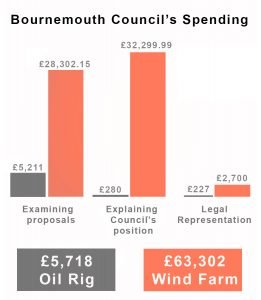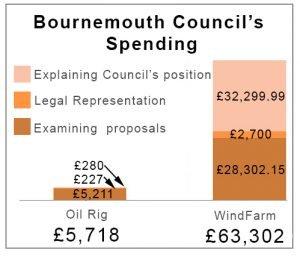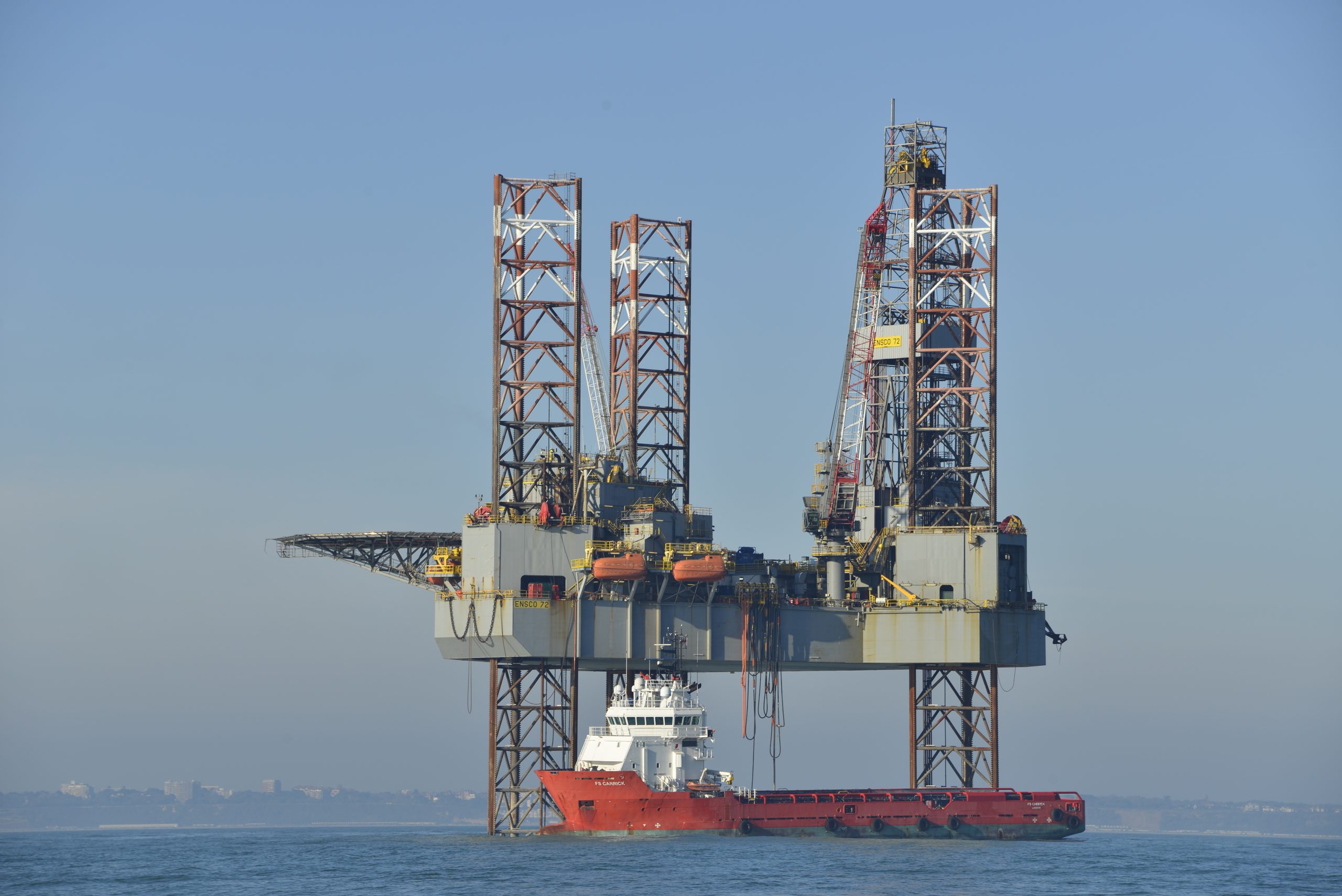Bournemouth Borough Council spent just £5,718 fighting Corallian’s Colter Prospect oil appraisal well in Poole Bay, but spent over eleven times as much opposing a local wind farm proposal in the same bay – but over twice the distance from the shoreline.
The figures were revealed through a Freedom of Information request querying how much the council spent dealing with the oil rig plans since the proposal was submitted.
In December 2014, an article in the Bournemouth Echo following a similar Freedom of Information Request, revealed that Bournemouth Borough Council had spent over £63,000 opposing the plans for the Navitus Bay Wind Farm.
But for the oil rig, the council said they had spent £5,718 throughout the entire process. This included, from the initial proposal and consultation in 2017, when the council communicated their response as a consultee to the government regulators, through to early 2019 when the oil rig arrived in Poole Bay. Within that period, Bournemouth Council spent £5,211 examining the proposals, £280 explaining the council’s position and £227 seeking legal representation.


Over the course of a similar timeframe, Bournemouth Council spent £63,302 dealing with the Navitus Bay proposals. Between April 1 2012 and 10 December 2014, they spent: £32,299 explaining the council’s position to the public, £28,302 towards examining the proposals, and £2,700 on legal representation all to oppose the wind farm.
Chris Rigby, a campaigner with Save Our Shores who is standing for councillor for Winton East with the Green Party, said of the news, “the difference between the figures clearly demonstrates the council opted to do the bare minimum required of them as a statutory consultee in the exploration for oil off of our coast, yet chose to spend tens of thousands of taxpayers money opposing Navitus, which could have led to Bournemouth becoming a zero-carbon leader in the UK.”
The Navitus Bay Wind Farm proposals were rejected in September 2015 following a four-year-long consultation process, including four phases of consultation open to public comment, spanning a cumulative period of 201 days.
By comparison, consultees and interested stakeholders had just 30 days between January and February 2018 to respond to a consultation on the proposed Colter oil appraisal well in the bay.
Chris continued, “There is no desire from Bournemouth’s current representatives in the council nor Parliament, to move with the times and embrace clean energy generation, which we sorely need to avert climate chaos.”












